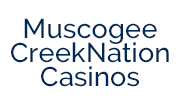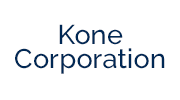The Difference Between Coaching and Mentoring – And Why You Need Both
Published February 18, 2019
We have different needs and varying ways of expressing our interests. Now and then, we yearn to fill up our knowledge gap and develop new skills. This need can sometimes consume us and push us to explore new avenues to satisfy them. The need could be at a personal or professional level. It could be the need to cover up our vulnerability when we talk about topics we know little about. Or it could be our desire to feel satisfied or stand-out in our position in the public space. Most times we try to acquire these skills and fill the gap using structured courses, workshops, self-teaching, and on the job formal or informal learning. In whichever way we go about them, the roles of coaching and mentoring can accelerate the right content choices and absorption of the learning.
At organizational and personal levels, we should be seeking greater self-awareness and development of our skills to remain relevant. Coaching and mentoring are practices that efficiently support our drive for greater self-esteem, problem-solving skills, and enhanced confidence in managing challenges especially in uncomfortable situations. On an organizational scale, the
The Difference between Mentoring and Coaching – From Three Perspectives
1. Orientation
There could be several ways to categorize the difference between a coach and a mentor, but for the sake of clarity, I propose a more comparable format. The first critical difference is in the orientation of the figures. Mentoring has a long-term relationship, since it seeks to provide the mentee with a safe avenue for sharing professional and personal secrets and successes.
In the same vein, the coach happens to be more of an ephemeral relationship compared to mentoring. The goal here is more laser-focused and deals with goals on a more tactical level, where the focus is on immediate areas needed such as key skills’ development like effective management, problem-solving, strategic thinking, etc.
2. Drive and Focus
Mentoring creates room for building trust and deeper, while coaching could just be an avenue to upgrade the receiver’s knowledge. Mentoring is development-oriented with the main purpose of developing the individual, more so than just the skills, for the future. This is why suitable mentors are often those at the top echelon of public life. Mentoring minimizes the chances of conflict at an organizational level, since immediate needs of both mentor and mentee have a different focus and a different level of drive. Alternatively, the main goal of coaching is to help individuals improve their performance through the establishment of new or stretched existing goals. Coaching involves most times the enhancement of the skills and acquisition of new skills after which the need for the coach continues to diminish. Unlike the mentor, where the learning process could extend indefinitely.
3. Manager Proximity and Design
Mentoring requires the indirect involvement of the manager of an employee, even though he or she can offer suggestions where such mentoring has an official undertone. The manager should have no organizational affiliation or be within the reporting structure of the mentor. While in the case of the coach, in some instances, the manager could be the coach and where the reverse is the case, the manager might have significant influence on the coaching process. The manager should be a critical partner in the coaching, which should promote improved feedback for advancing the employee’s responsibilities.
In most mentoring engagements, the design of the partnership takes on the focus of developing the employee (or mentee) as a whole person, beyond just skills. The approach is more transformational than transactional. This is unlike the coaching process, which maintains a transactional foundation which can take place at any time, and place. Coaching ultimately can lead to a transformational experience, but this would be a secondary benefit of the relationship. To move coaching forward, all that’s required is an understanding of the competency area, needed expertise and tools of assessment within the shortest possible time.
Benefits of Coaching and Mentoring
Follow the most successful people in any area of professional endeavor and you will usually find significant impact from a mentor and a coach that have helped accelerate their success. There are increasing benefits of coaching and mentoring in several areas of human endeavor. The form of professional development is a positive sign for the transmission of skills and knowledge from one person to another. The benefits of coaching and mentoring cut across an individual and organizational level. According to Exforsys.com, companies find coaching and mentoring extremely beneficial for professional and career growth of employees.
After the sharing of their professional wisdom, there is a general feeling of satisfaction for both the coach and mentor. They have increased job satisfaction, enhanced skill level, strategic thinking and analytical skills. There is also the gain of professional development and self-esteem. When I was responsible for the HR mentoring program at Intel, we consistently found that mentors felt that they benefitted an equal amount, or even more, than their mentee during the mentoring process.
The receiver (mentee or coachee) of the information, the learner, is the person that has the highest expectation for gain, since he or she is the cynosure of attention. It is equally an opportunity for professional and career development, growth and improved skills. This opportunity enables him or her to spot personal and professional weaknesses and transforms them into strengths and opportunities. His or her problem-solving skills and relationships with superiors are often increased.
Benefits of coaching and mentoring are accruable to everyone. Organizations are not left out of the gains. Mostly, firms see a gain in better staff retention, competitive advantage in the market resulting from improved performance and productivity. There is equally a greater chance of attaining goals, efficient communication, and fuller utilization of human and material resources.
Why Do You Need Both Coaching and Mentoring?
The benefits of coaching and mentoring are both short-term and long-term positioned respectively. According to the Coachingnetwork.org, coaching offers professional opportunities, while mentoring offers a more philanthropic perspective. Below are some of the reasons you need both processes and not just one or the other.
Coaching and mentoring together will help to facilitate exploration of skills, desires, needs and motivations combined with thought processes to help the individual to make a real life change. The inquiry processes employed by both will help in providing solutions to identified areas of weakness and strength. Both processes could apply creative tools such as counselling, networking, facilitation or one-on-one training sessions to achieve desired results. They equally encourage the spirit of commitment to action, accountability and development of personal and professional growth. Both processes are designed to maintain a positive and objective outlook and shift the focus from the organization to the development of the individual.
When organizations encourage formal mentoring and coaching activities it sends a strong positive message to the people that the company is committed to a longer-term engagement. The bottom-line results are that people stay with longer with organizations that care about their employees. This is not just a nice-to-have perk it makes good financial sense, Usually the cost of losing even one employee pays for the time, effort and minimal cost of any organization’s mentoring and coaching initiatives. Take 30-seconds to see the exact cost savings of keeping one of your employees. Click here: https://magnaleader.co/Attrition_Calculator
________________________________________________________________________________________________________
We hope you enjoyed this article valuable in understanding The Difference Between Coaching and Mentoring – And Why You Need Both. You can find more Management and Leadership knowledge on our website www.MagnaLeadership.com. We are trusted advisors for executives of small to mid-sized organizations who realize an investment in emerging leaders solves their growth and engagement challenges.
Dr. Kevin Gazzara – is a senior partner and founder of Magna Leadership Solutions, based in Phoenix, Arizona. He is the author of “The Leader of OZ” www.leaderofoz.com. He is an international speaker and recognized as a Management & Leadership Expert and an Executive Coach. Kevin is a professor at 5 Universities developing and teaching programs to help others achieve their full potential. You can follow Kevin and Magna Leadership Solutions on our website: www.magnaleadership.com, on Twitter: https://twitter.com/doctorkevinor our Facebook Fan Page at https://www.facebook.com/MagnaLeadership
We would be excited to speak with you about your current leadership challenges. Please Click here to connect with one of Magna Leadership’s advisors. https://magnaleader.co/MeetMagna
If you have any comments, suggestions or ideas, we encourage you to share your thoughts with us and our readers in the comments below.
Thank you,
Dr. Kevin Gazzara
Magna Leadership Solutions
Senior Partner
________________________________________________________________________________________________________
Source Links


 The Leader of OZ : Revealing the 101 Secrets of Marvelous Leadership for the 21st Century
The Leader of OZ : Revealing the 101 Secrets of Marvelous Leadership for the 21st Century





















